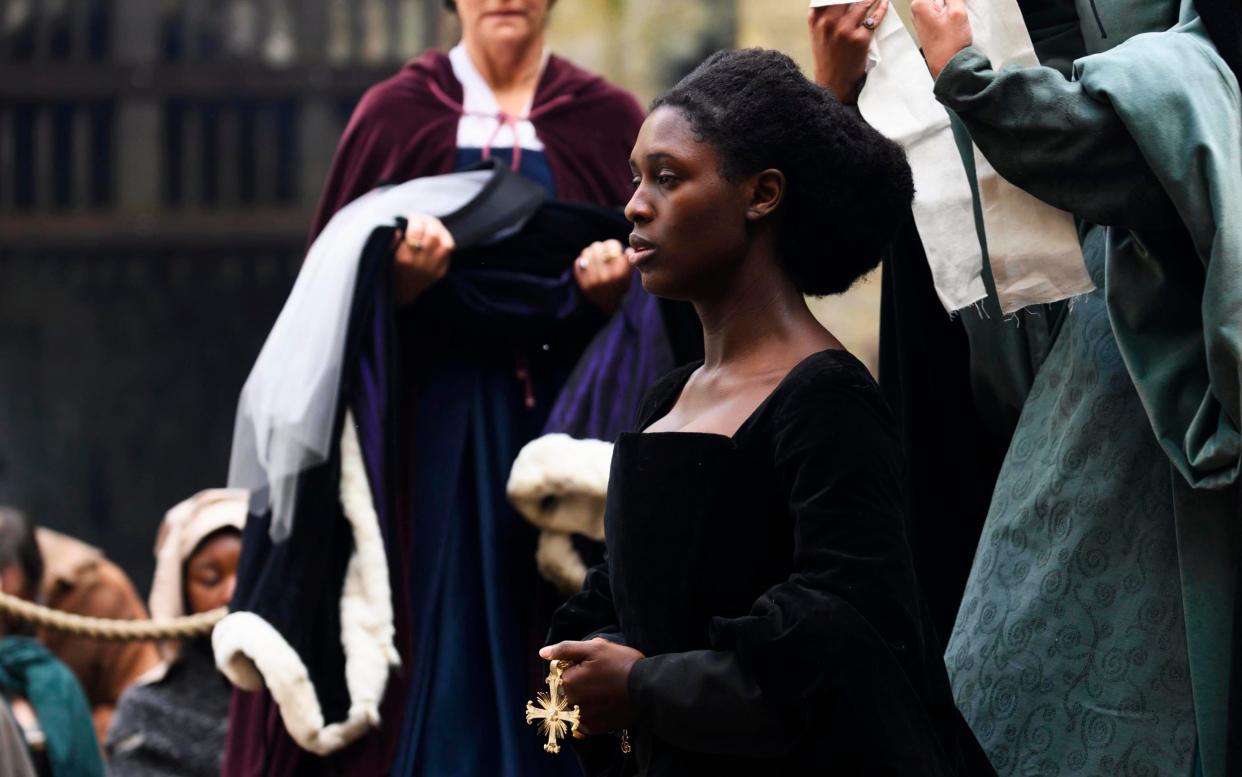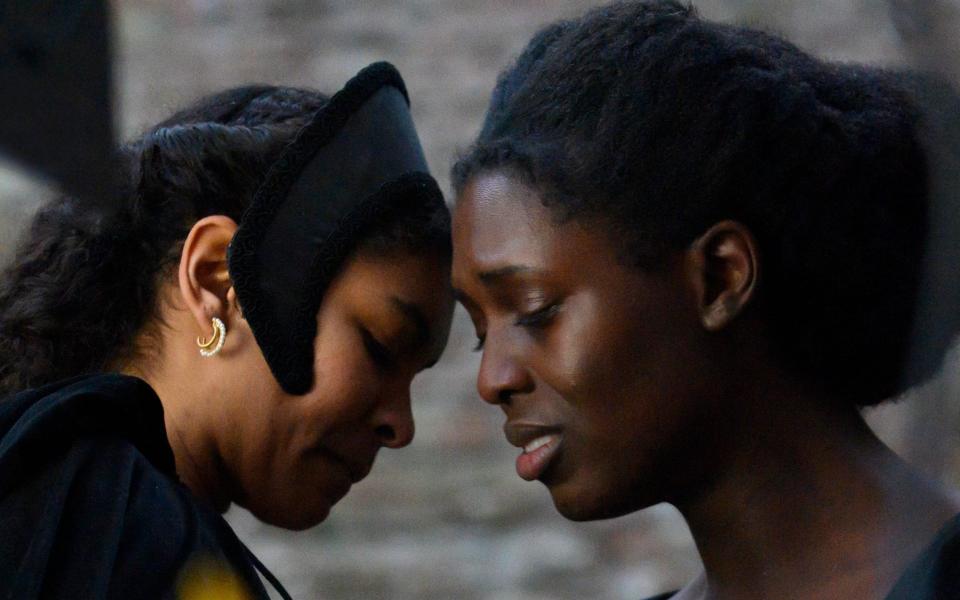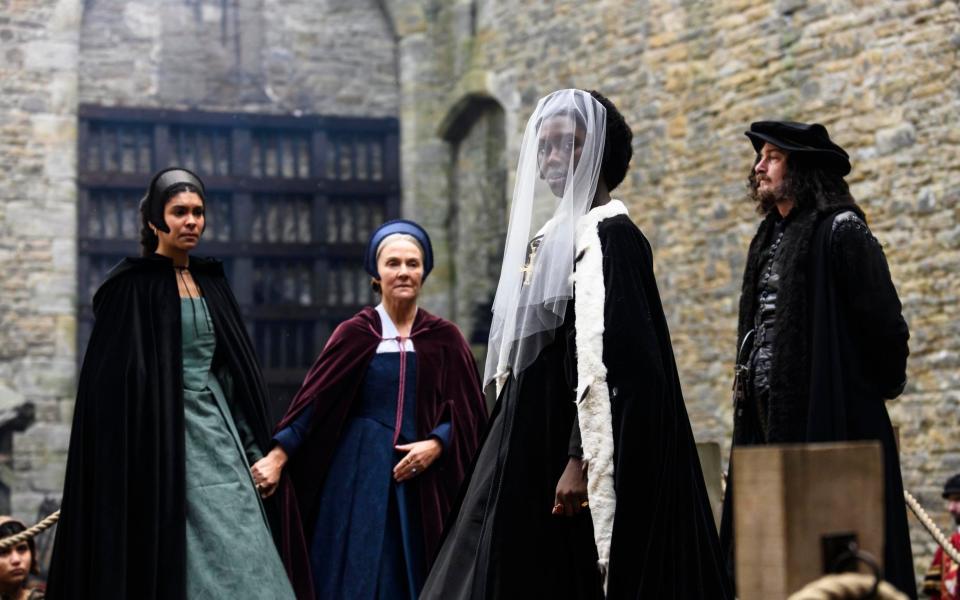Anne Boleyn, episode 3 review: a revisionist, feminist take on this old second wives' tale

“When people speak your name they will think of mine and the lengths you went to sully it.” Anne’s closing salvo to her nemesis, Thomas Cromwell, doubled as something of a mission statement for Anne Boleyn (Channel 5); a rejoinder to Wolf Hall’s Cromwell-focused approach as vendettas were concluded, scores were settled and Anne’s head rolled.
Anne’s head was, in fact, where we spent much of this third and final episode. Henry was entirely absent and, while Anne was not as solitary in her cell as she might have wished (her jailor interposing himself at various inopportune moments), we were given plenty of opportunity to reflect on her situation; Jodie Turner-Smith offered glimpses beneath the front of opacity as she weighed up her fast-diminishing options.
Cromwell made occasional appearances to bring bad news, not least regarding the trumped-up charges of treason, adultery and incest; Barry Ward made for a compellingly slippery adversary, his reasoned tones reflecting his total confidence in the outcome and concealing his murderous intent. Anne’s perfidious governess-turned-informant Lady Shelton (Amanda Burton) began to distance herself, while even her former ally Thomas Cranmer (Abhin Galeya), a broken man, presented a deal swiftly reneged upon, securing Anne’s annulment of her marriage in return for a pardon that was never granted.
Each would live, albeit diminished by the bargains they had made. By the time Anne stepped to the scaffold, only Shelton’s daughter Madge, (Thalissa Teixeira), remained loyal to her.

When the trial finally arrived, the injustice meted out was made abundantly clear; former friends had been bribed and blackmailed into bearing false witness while Cromwell accused his quarry of the very crimes his king committed so freely, “following carnal lusts and betraying holy matrimonial vows”. Anne’s defiant statement in her defence ticked off several of the lazy, misogynist, euphemistic accusations which she and so many women since have faced – “difficult, ambitious, vain” and the rest – delivered all the more effectively for the knowledge it was in vain.
Writer Eve Hedderwick Turner chose to end not with Anne’s famous address to the masses (“Good Christian people, I am come hither to die”) but instead with Anne’s letter composed to her infant daughter, Elizabeth, talking about using fear as a tool and flying too close to the sun. In its own subdued way, it was rather affecting, finding hope in the depths of despair while Madge suffered on the sidelines.

In truth, this final episode probably didn’t need the extra 15 minutes it was granted, as the pacing faltered and some of the tension seeped away, while some of the supporting performances convinced more than others. Even so, there has been much to admire in both its revisionist, feminist aspirations and muted restraint of its realisation, while Ward, Teixeira and Turner-Smith held the attention throughout.
Where most BBC costumers carry a certain prestige almost by default and Channel 4’s rare ventures into early modern history (The Devil’s Whore, for example) have brandished a sense of mischief and subversion, Channel 5 has here carved out something of a niche in period drama: attention-grabbing casting (deliberate or otherwise) underpinned by a muted sobriety that became apparent once the brouhaha over Turner-Smith had abated, and served the subject matter well. Let us hope it is not the broadcaster’s last dive into the distant past.

